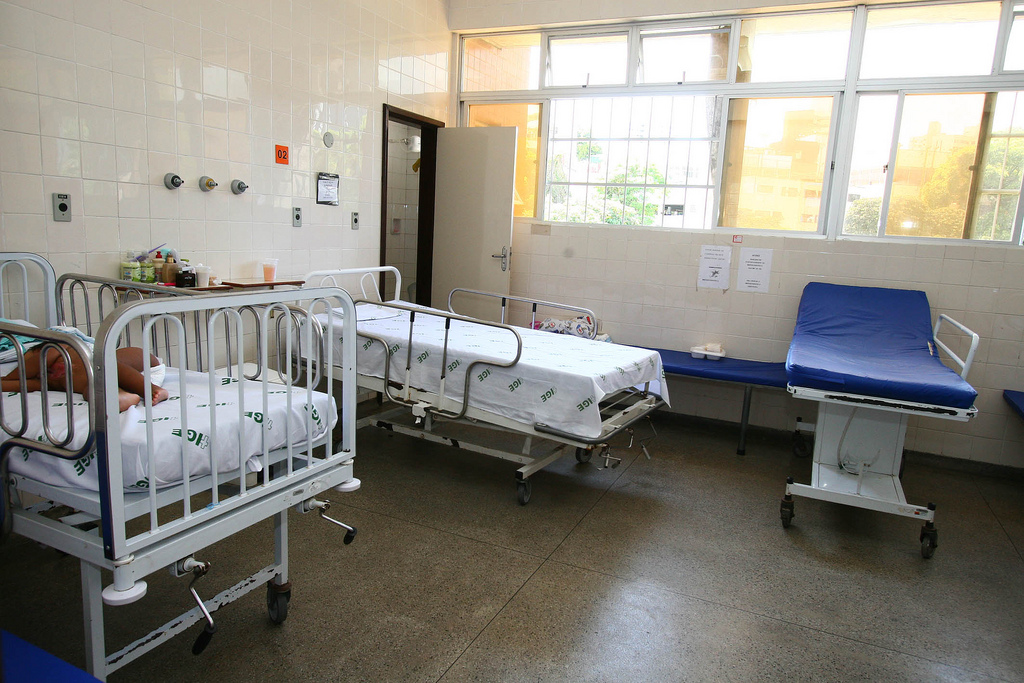By: Dr. Craig A. Maxwell
Among the many hazardous threats to hospitals, doctors’ offices, and countless other health care facilities throughout the world, bacterial and viral infections are perhaps the most hostile. Hospitals are especially at risk! Despite best measures including constant disinfection, forms of patient isolation, and the use of antibiotics, these infections can often cause more serious health issues than the original reasons for needing help! Hospital-acquired infections are called nosocomial infections. The good news is that patients who take probiotics, not only for preventive measures but as a part of their post hospital treatment, are often able to fend off nasty infections they may have encountered during their stay.
Studies at St. Michael’s hospital in Toronto have shown that “10 percent of patients who receive antibiotics while in the hospital will get antibiotic associated diarrhea and of those patients, 15 percent of them will have diarrhea because of C. difficile.” Resident Dr. Reena Pattani and colleagues pooled data from 3,403 patients, and found a significant reduction in the cases of antibiotic associated diarrhea and C. difficile infection in those patients who were administered probiotics. Pattani concludes that these results are most likely due to the powerful effects of probiotics fighting pathogens.
What Are Probiotics?
The digestive system is home to over 400 different types of bacteria. These good-guy bacteria are present within your body to help keep the intestines healthy, provide assistance with digestion, and promote a hearty immune system. Probiotics are tiny microorganisms that help to maintain the natural balance of bacteria in the gastrointestinal tract. A growing number of studies have shown that probiotics can be used in the treatment of all sorts of illnesses and ailments; including diarrhea, colon inflammation, skin infections, digestive tract infections, irritable bowel syndrome, and even tooth decay!
How Probiotics Work
Antibiotics not only eliminate dangerous microbes, but they also wipe out the good bacteria within your body. As antibiotics are becoming more and more widely prescribed for many types of health ailments worldwide, it’s important to re-establish the good gastrointestinal bacteria as well. Although doctors and scientists aren’t certain of the exact way that probiotics work, it is widely thought that probiotics simply swarm, overpower, and attack the bad bacteria. Think of probiotics as your own mini army, best equipped to fight and defeat the enemy force inside your body!
Many Beneficial Uses of Probiotics
As probiotics can be used for everything from keeping pathogens in check, to aiding with nutrient absorption, it’s important to understand which probiotics are best for treating certain ailments.
1) Boost Immune System: Lactobacillus casei DN-114001
Lactobacillus casei is an important factor for regulating the immune system. This bacteria is naturally found in the human intestine and mouth, as well as some fermented foods such as yogurt. This bacterium physically occupies the intestinal mucosa, preventing certain bad bacteria such as E. coli from colonizing. Additionally, this bacterium can also help to alleviate constipation.
2) Urinary Tract & Vaginal Health: Lactobacillus rhamnosus GR-1 & Lactobacillus reuteri RC-14
L. rhamnosus and L. reuteri are known as some of the best types of probiotics for women’s health. Both of these bacteria are shown to adhere to the cells of the bladder, vagina, and intestine; preventing adhesion of harmful bacteria while also inhibiting the growth of yeast. L. rhamnosus can also induce an anti-inflammatory effect, as well as decrease preterm labor. L. reuteri helps to fight against the common superbug Staphylococcus aureus.
3) Irritable Bowel Syndrome: Bifidobacterium infantis 35624
Bifidobacterium infantis is known to help treat irritable bowel syndrome. B. infantis can help to alleviate abdominal pain, reduce bloating, constipation, gas, and other types of bowel dysfunction.
4) Tooth Decay & General Oral Health: Streptococcus salivarius K12 & M18
Not only can probiotics be swallowed in pill or powder format, similar results can be achieved by chewing on, or gargling oral probiotics! S. salivarius naturally colonizes the human mouth a few hours after birth, to help prevent exposure to harmful pathogens. This type of bacterium is not only used for fighting tooth decay, but can also be used to combat plaque, cavities, bad breath, dry mouth, and even ear infections!
5) Eczema: Lactobacillus Rhamnosus HN001
Daily supplementation with L. rhamnosus HN001 is widely used to help reduce the risk of eczema, especially in children or adults at-risk of inheriting eczema. This bacterium is naturally found in a certain type of cheddar cheese, which has been popularly consumed in New Zealand for many years!
6) Hospitalization: A Powerful Probiotic Combination
In my opinion, the best type of probiotics for recent hospitalization and everyday use is a combination probiotic. A high quality probiotic used to recolonize the GI tract after antibiotic use, steroid use, or hospitalization should contain at least 225 billion CFUs spread over six different strains. I recommend taking Diamond Nutritionals Ultra Probiotic formula, one packet a day for 30-60 days to re-establish the positive GI bacteria. After that, I often reduce the dose to 20 billlion bacteria spread over 6 strains with 2 billion Saccharomyces boulardii, a potentiator for good bacteria. This is done by taking one Diamond Nutritional’s Probiotic Formula capsule daily. Again, this is a great combination for anyone who has recently been hospitalized, as well as for good health maintenance.
Probiotic Safety
For most people, probiotics are considered safe and effective against harmful pathogens, without the risk of any negative side effects. However, young children, elders, and anyone with a compromised immune system should first seek advice from their physician before adding probiotics to their diet.









